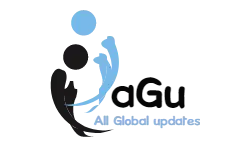Software Skills for Resume: Top Computer Skills to List on Your CV;- Deciding which computer skills to include on your resume is the first step in mastering your job search. If you’re looking for a new job, it’s important to list all of the skills that make you a great candidate for employment. Consider this list as a starting point for brainstorming what skills to include on your resume, based on what type of role you want and how much experience you have using them.
Software Skills for Resume Questions: Top Computer Skills to List on Your CV
You can list software skills for resume questions by listing the following:
- Microsoft Office Suite (Word, Excel, PowerPoint)
- Social Media Management Tools (Hootsuite, Buffer)
- Programming Languages (PHP, JavaScript, Python)
1. Microsoft Word
If you have a background in Microsoft Word, you should definitely include it on your resume. This is because Word is one of the most popular word processing programs in the world and many employers use it themselves to create documents and other content.
To view what Microsoft Word can do, visit: https://www.microsoft.com/en-us/word/.
2. Microsoft Excel
You can use Microsoft Excel to create spreadsheets, perform complex calculations and analyze data. Some other skills expected for this position include:
- Data analysis
- Spreadsheet creation and management
3. Adobe Photoshop
Adobe Photoshop is a computer program used to manipulate digital images. It’s the most popular image editing software in the world and has been around since 1988.
You can use Adobe Photoshop to make your photos look better, add effects, create art and more.
Adobe Photoshop is highly valued by employers because it can be used for a wide variety of jobs including web design and illustration. It’s also useful if you want to get into graphic design or photography professionally.
A basic understanding of Adobe Photoshop will help you master other programs such as Illustrator, InDesign and Dreamweaver (all from Adobe).
4. Adobe In Design
Adobe InDesign is a software program that allows you to build page layouts. It’s often used to create print materials such as magazines and newspapers, but it can also be used in web design.
Adobe InDesign has several benefits:
- You can easily resize images and text. This makes it easy to make sure that your images are the right size for your publication.
- You can quickly add special effects to make your publication look more professional (for example, adding shadows or making text fade away).
- You can customize existing templates so that they meet the needs of your company or organization better than an off-the-shelf template would have done.
5. WordPress
WordPress is a free and open source content management system (CMS) based on PHP and MySQL. WordPress is used by over 28.7% of the top 10 million websites as of August 2017, making it the most widely used CMS in the world.
WordPress has many features that make it easy to use:
- A user-friendly interface
- Mobile apps for iOS and Android devices that allow you to access your site from anywhere
- Plugins help you customize your website without having to hire a developer
6. Google Analytics
- Google Analytics
Google Analytics is a free service that allows you to track and analyze the traffic on your website. It can help you understand who comes to your site, what they do while they’re there, and how long they stay.
The insights provided by Google Analytics can be invaluable for any business owner or digital marketer looking to improve their website’s performance and overall user experience (UX). The data can also be used as evidence of your IT skills if you decide to list them on your resume — even if it isn’t directly related to job requirements!
7. SEO (Search Engine Optimization)
If you’re looking for a computer skill that’s both relevant in today’s job market and easy to learn, SEO (search engine optimization) may be the answer.
SEO is a set of techniques used to increase the visibility of a website in search engines like Google, Bing, etc. This can include on-page optimization (stylistic elements) as well as off-page optimization (link building). It’s also sometimes called “SEM” or “digital marketing.”
8. PHP and Linux/Unix
PHP is a server-side scripting language that is used to create dynamic web pages. PHP was originally developed as an alternative to Perl, which was the first web programming language.
PHP allows you to create database-driven web applications with ease. These applications can be used in many different business scenarios. It’s also an excellent tool for creating eCommerce sites that are responsive and mobile friendly. If you’re looking for job opportunities in these areas, it’s essential for your resume skills section that you include PHP and Linux/Unix on your list of computer skills.
9. SQL (Structured Query Language)
SQL is a database language. It’s used to query and manipulate data in a database. SQL is also used to create and manage databases, tables, indexes and other objects in the database.
The ability to use SQL lets you interact directly with your data via queries and reports, as opposed to using tools like Excel or Access (or even Google Sheets). This makes it an important skill for people working with large amounts of data—for example: marketing professionals looking at customer behavior patterns; analysts who want more control over their analytics reporting processes; or managers who need better insight into their company’s operations.
10. Java and C++
Java and C++ are programming languages. Java is a server-side language, meaning that it’s used to build applications that run on the web and on Android devices. It’s also used for desktop applications, embedded systems, and game development. C++ was originally created as an update to C by Bjarne Stroustrup in 1983. It has since evolved from a procedural language into an object-oriented one, but it remains very popular in gaming development because of its speed and flexibility.
Deciding which computer skills to include on your resume is the first step in mastering your job search.
The first step in mastering your job search is deciding which computer skills to include on your resume. If you’re looking for a job as a software engineer, or any other tech-related occupation, those skills will likely come up in an interview. As such, it’s important that you know exactly what these companies are looking for and make sure that you’re including the right stuff on your resume.
You should be sure to consider these three things when listing software skills:
Conclusion
We hope that this list has helped you gain some clarity on which software skills to include on your resume. Remember, it’s important that you tailor your CV for each job that you apply for. So, if one of the above-mentioned skills is not relevant to the position in question, then leave it out! It’s better than having too much information or including irrelevant details that may confuse potential employers.






Leave a Reply